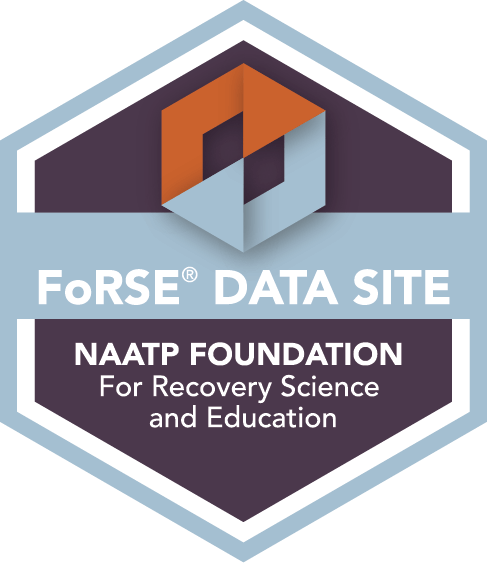At Northern Illinois Recovery Center in Crystal Lake, Illinois, our young adult rehab center provides teen mental health treatment to help adolescents manage their mental health issues in a safe, supportive environment.
With customized behavioral therapy services and a holistic approach focused on families, we treat the whole person. You no longer have to feel helpless about your teen’s situation. There is hope and help available.
Teen and adolescent mental health is a critical aspect of overall well-being during a period of life filled with physical, emotional, and social changes. Adolescents experience unique pressures that can impact their mental health, including school challenges, peer pressure, identity formation, and the development of emotional regulation skills. During this time, they may be more susceptible to mental health conditions such as anxiety, depression, and eating disorders.
It is essential to recognize that mental health challenges among teens are not a sign of weakness but rather a natural part of navigating this complex phase of life. Understanding teen mental health involves acknowledging these changes and recognizing the symptoms of common mental health conditions.
How Northern Illinois Recovery Center Helps Teens
Combining evidence-based therapies with individualized care, our center tailors its approach to meet the specific needs of each teen. We aim to provide a safe environment where teens can address their mental health challenges, cultivate healthy coping strategies, and strengthen their resilience. We offer a variety of treatment programs and mental health counseling to help adolescents navigate their challenges.
Teen Intensive Outpatient Program (IOP)
The primary objective of a teen IOP is to assist young individuals in managing their mental health and attaining sustainable recovery, all while enabling them to uphold their daily routines and responsibilities, including school and extracurricular activities.
Our teen IOP in Illinois focuses on providing specialized treatment for high-acuity mental health conditions through hyper-personalized and comprehensive care tailored for adolescents.
Teen Mental Health Issues We Treat
- Anxiety disorders
- Depression
- Schizophrenia
- Substance use disorders (SUDs)
- Eating disorders
- Attention-deficit/hyperactivity disorder (ADHD)
- Bipolar Disorder
- Post-traumatic stress disorder (PTSD)
- Obsessive-compulsive disorder (OCD)
- Self-harm
- Social media addiction
Several mental health disorders are commonly diagnosed in adolescents, and each requires specific treatment and care. These include:
Depression is one of the most prevalent mental health conditions in teens. Symptoms may include persistent sadness, irritability, a lack of interest in previously enjoyed activities, and feelings of hopelessness.
Anxiety disorders, including generalized anxiety disorder, social anxiety, and panic disorder, are prevalent among adolescents. Teens with anxiety may experience excessive worry, fear, or panic attacks that interfere with daily life.
Bipolar disorder is characterized by extreme mood swings, including manic episodes of intense energy and depression. Teens with bipolar disorder often experience significant shifts in their emotions and behavior.
Attention-deficit/hyperactivity disorder can manifest as difficulties with focus, impulsivity, and hyperactivity, affecting a teen’s ability to perform well in school and maintain relationships.
Substance abuse can often be a response to mental health issues such as depression, anxiety, or trauma. Teens struggling with substance use disorders need specialized treatment to address both their addiction and mental health concerns.
Disorders such as anorexia nervosa, bulimia, and binge eating disorder are common among teens. These disorders are often driven by an unhealthy relationship with food and body image.
Traumatic experiences can result in post-traumatic stress disorder, which is marked by intrusive thoughts, nightmares, and avoidance behaviors.
Obsessive-compulsive disorder is characterized by persistent, intrusive thoughts and compulsive behaviors.
Overuse of social media can adversely affect mental health and overall well-being.
Pressures Teens Face with Mental Health
- Academic stress: Pressure to perform well in school and excel academically can contribute to anxiety and stress.
- Social media: The exposure to unrealistic body images, social comparison, and cyberbullying can adversely affect the mental health of teenagers in the form of self-esteem issues, body image concerns, and feelings of inadequacy.
- Peer pressure: Teenagers often feel the need to conform to social norms and peer expectations, leading to risky behaviors or mental distress.
- Family dynamics: Family problems, such as divorce or financial stress, can affect a teen’s emotional health.
- Uncertainty about the future: Teens may feel overwhelmed by the uncertainty of their future, including career choices and personal goals.
- Bullying: Being subjected to bullying can result in anxiety, depression, and various other mental health challenges.
- Life transitions: Changes such as relocating to a different school, beginning a new job, or undergoing significant life alterations can induce stress.
These external pressures, when combined with the natural emotional and physical changes of adolescence, can significantly impact a teen’s mental health.
How Do I Know My Teen is Struggling?
If your teen suddenly becomes withdrawn, loses interest in activities they once enjoyed, or begins acting out in ways that are unusual for them, this could signal a mental health issue.
A noticeable drop in academic performance or a lack of motivation to attend school may indicate mental health concerns, including anxiety or depression.
Insomnia, sleeping too much, or constant tiredness can be signs of mental health issues.
Extreme changes in eating habits, such as eating too much or too little, could be linked to eating disorders or depression.
If your teen is avoiding social interactions, withdrawing from family activities, or isolating themselves from friends, they may be struggling with depression or anxiety.
Mood swings, irritability, and unexplained anger can be signs of depression, anxiety, or other emotional difficulties.
If your teen exhibits signs of self-harm or expresses suicidal thoughts, immediate intervention is necessary.
If you observe any of these signs in your teen, it’s crucial to seek professional help and choose the best teen treatment program in Northern Illinois to address the root causes.
Insurance Verification




Teen Therapy Programs
Therapy, often in the form of cognitive behavioral therapy (CBT) or dialectical behavioral therapy (DBT), is a powerful treatment for many mental health conditions. Counseling offers a safe space for teens to express their emotions and gain coping strategies for managing stress, anxiety, or depression.
Medications can help teens manage symptoms of depression, anxiety, and other disorders. A psychiatrist typically prescribes these medications after an assessment. They are often used alongside therapy to maximize treatment outcomes.
In some cases, family dynamics play a significant role in the adolescent’s mental health. Family therapy helps improve communication, address conflict, and build support systems within the home environment, which can positively impact the teen’s recovery process.
Holistic approaches like art therapy, mindfulness, yoga, and equine therapy can complement traditional treatments. These methods help teens reconnect with their emotions in a non-threatening way.
A dual diagnosis refers to the condition where an individual experiences both a mental illness and a substance use disorder. This co-occurrence is particularly prevalent among teens, as they may turn to substances like alcohol or drugs to cope with mental health challenges such as depression, anxiety, or trauma.
It’s essential for treatment to address both conditions simultaneously. Integrated care approaches, where mental health and addiction treatment are provided together, offer the best chance for long-term recovery and wellness.
Benefits of Teen Mental Health Treatment
- Early identification: It is vital to recognize the early signs of mental health issues.
- Open communication: Establishing a secure environment for adolescents to express their emotions is critical.
- Supportive environment: Offering a consistent and caring atmosphere can assist teenagers in managing stress.
- Comprehensive treatment: Treating both conditions together provides a more comprehensive approach to care, improving the chances of successful recovery.
- Individualized care: Integrated care allows for more personalized treatment plans that consider the unique needs of each teen.
- Coping and life skills: Instructing teenagers in healthy coping strategies, such as physical activity, mindfulness, and relaxation methods, can aid them in handling stress.
- Reducing stigma: Tackling the stigma related to mental health can motivate adolescents to seek assistance.
- Better long-term outcomes: Teens who receive integrated care tend to have better long-term outcomes in terms of mental health, addiction recovery, and overall well-being.
- Family involvement: Integrated care often involves family therapy, allowing for a more supportive home environment that aids in the teen’s recovery.
Manage Your Mental Health at Northern Illinois Recovery Center
Our dedicated professionals are ready to work with you and your family to develop a personalized treatment plan that can make a lasting difference in your teen’s life. Contact us today!





